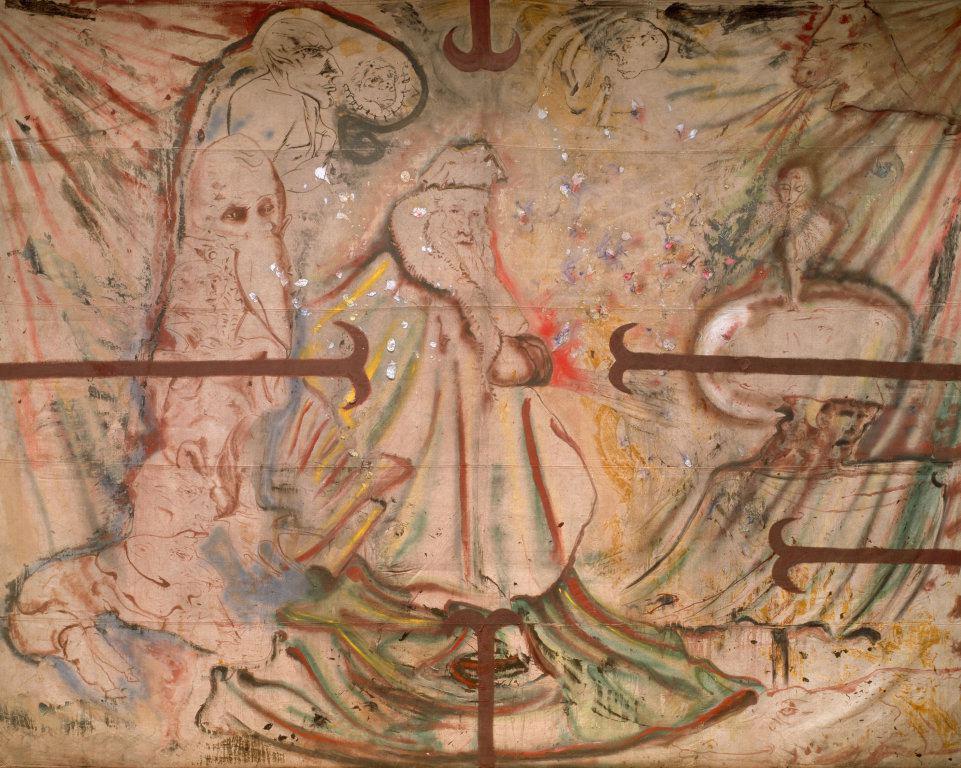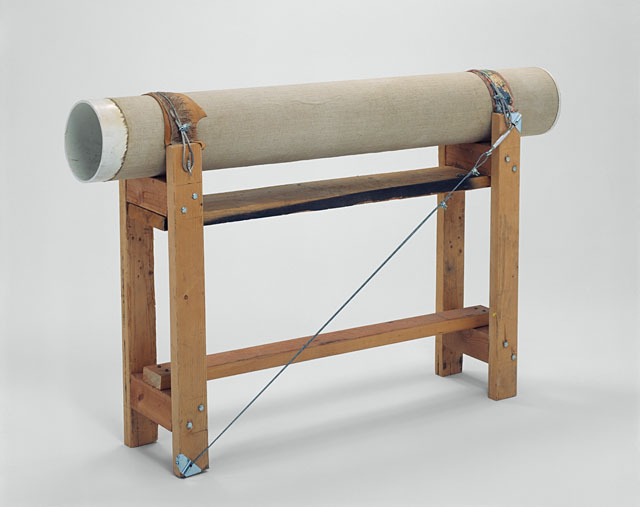While Julian Schnabel is known best for paintings on crockery, since the mid-1980s Schnabel has also made many paintings on tarpaulins. The Wind is among the first of these tarpaulin paintings.
Julian Schnabel's figurative and abstract images, drawn from a wide variety of literary and art historical sources, as well as the artist's own experience and imagination, interact and combine into thematically unified works. Selected for their color and texture, unconventional materials (animal hide, blankets, velvet, and tarpaulin) are used as grounds upon which Schnabel builds up wax, modeleing paste, and pigment, producing beatuifully worked, but agitated surfaces. found objects, particularly the broken ceramics that have been identified with Schnabel's work, are often employed as formal elements and create numerous interplays between the thick, three-dimensional surfaces and the orginal two-dimensionality of the grounds. Both his images and chosen media assume equal formal and emotive roles in Schabel's work.


